- Home
- Tim Lebbon
Echo City Page 6
Echo City Read online
Page 6
“Why?” he asked.
“Why what?”
“Why … all of it?”
Peer shook her head. She’d lit some candles earlier, and now one of them went out with a gentle hiss. The room grew fractionally darker, but she did not notice the difference.
“Because that’s just the way we are,” she said. She kept hold of his hand. His eyes closed and his breathing softened. Peer looked down at where their hands touched. He’s from somewhere else, she thought. He’s no wandering god, no straggler from Echo City gone out and come back again. If he was, he’d be growing sick by now, not getting better. She tried to let go of his hand, but he squeezed.
“My name …” he said, frowning again.
“Let me give you one,” she said, and the man nodded against his pillow. “Well … my father was called Rufus.”
“Rufus.”
“And for a second name … there are people who believe that seventy-seven six-legged gods wander the desert.”
“I saw no gods,” he said, smiling.
“It’s just a belief,” she said, shrugging. “One of them is called Kyuss. He’s supposed to be the god of new things. It’s his job to make sure Echo City moves forward.”
“Echo City?”
“That’s where you are.”
“Where is Echo City?”
“It’s …” Peer did not know how to answer. No one had ever asked her that before, because the question made as much sense as Where is the air? “It’s here,” she said. “It’s everywhere. It’s the whole world.”
“No,” the man she had named Rufus Kyuss whispered, “there’s more.” And then he fell asleep and did not wake until morning.
Penler answered the door, bleary-eyed and with a knife in his hand.
“Peer? It’s barely dawn. I was expecting you for dinner last night, and I—” He saw the shape standing behind Peer. “Who’s this?”
“His name’s Rufus.” She ushered him through Penler’s door, and the old man stood aside to let him enter. Penler glanced back and forth, confused, but Peer didn’t give him time to object. By the time she was inside and closing the door behind her, throwing the bolts and checking through the peephole to make sure they had not attracted any attention, Rufus had disappeared into the house’s shadows.
“Crap, Peer, what’s going on?”
“Sorry about last night.” She pushed past him and followed Rufus inside. He was in the large living area, standing in the center and turning a full, slow circle as he stared in wonder at the walls. Penler was a collector of maps, and he had some parchments that dated back many hundreds of years. One showed an area of Mino Mont that was now an Echo, built over seven hundred years before.
None of that would mean anything to Rufus. Yet Peer watched his amazement, and her heart skipped a beat.
“Who the crap is that?” Penler whispered behind her.
“He’s a new arrival,” Peer said.
“Oh,” he said, raising his voice slightly. “Well, sorry. Welcome to Skulk.”
“Skulk?” the man said, confused. “This is not Echo City?”
“No, no,” Peer said, turning and placing her hands on Penler’s shoulders. Exhausted though she was, and terrified, and in pain from the air shards in her arm, she could not contain the smile that warmed her face. “Penler, he’s from outside. Out there!” She waved her hand in the general direction of the desert, frustrated because she could not properly voice what she had to say.
“Not Echo City,” Rufus said.
The blood drained from Penler’s face, and he swayed a little. Peer guided him to a chair, terrified that she’d sprung this on him too suddenly. He was an old man, and though he seemed fit, decades in Skulk had done him no good. She’d never forgive herself if—
“The Garthans,” he whispered.
“What? No, no, Penler. They don’t know about him. No one knows.”
Penler looked past Peer at Rufus, who was now slowly pacing the perimeter of the large room, examining the maps.
“And no one can know,” she said. She leaned down so that he had to look into her eyes. “Penler, this is what we’ve been waiting for all our lives!”
“We?” he said, still pale, shaking his head slightly. “Peer, it’s a trick. It has to be. How can you be sure?”
“I saw him walking in across the Bonelands.”
“When?”
“Yesterday, not long after you left me at the wall.”
“No.” He shook his head. “Impossible.”
She was annoyed at Penler’s reaction, and confused. He was the intellectual, the philosopher of Skulk, banished because of his great ideas. And yet here he was doubting instead of questioning, falling back on indoctrination instead of considering the fantastic possibilities that stared him in the face. He shook his head slowly, and she had never seen him looking so old.
“Penler, just listen to him, the way he builds his words, the way his voice twists around them—Echoian, but like none I’ve ever heard.”
Penler was still shaking his head.
“Look in his bag! See what he carries, the strange things he’s brought. Do you know what this means?”
“Do you?”
“Yes, of course! It changes everything, and—”
“Do you really believe this city can survive change?” he asked. “This city, built on the past?” And suddenly she knew what was wrong. He does believe, she thought, and that’s why he’s so afraid.
“Penler …”
A tear escaped his left eye and dribbled down his cheek. His face crumpled for a moment, then he seemed to gather himself again, wiping away the tear and standing up from his chair. Never once did he take his eyes off the man in his room.
“You believe,” she said.
“I never had any doubt,” he whispered, “but I never thought it would be in my lifetime.”
“He can’t stay in Skulk,” Peer said.
“I know. But for now can I just …?”
Peer reached out and brought the old man to her in a hug. He held his breath before hugging her back, his gasp warm and stale against her neck. She had not held anyone this close for a long time.
“I was going to get some breakfast anyway,” she said. “But can’t you leave Skulk with me?”
“Not me,” he said, shaking his head against hers. “Not now. I’ve been here too long, and too many people know me. I’d slow you down. But I can help.”
Peer pulled away so that she could look at him again. His eyes were moist, but she pretended not to notice. “How?”
“Oh, you know me. I have something about me.”
“There’s no such thing as magic, Penler.”
He looked at the man from the desert again, as if to dispute her words. “Tell that to the magician’s audience,” he said. “Now go. Breakfast. We need a feast.” He pressed five shillings into her hand and then walked past her into the room.
Peer watched Penler and the visitor for a beat. He wants him to himself for a while, she thought, and she could hardly blame him. Such a great man would have so many questions.
Outside, Skulk’s morning air seemed fresher than usual, cleansed by the previous night’s rain. Or perhaps it was the smell of potential.
She bought breakfast from a street vendor—fried chickpig in fresh bread sandwiches, a large carafe of five-bean, and a selection of dried fruits—and on her return to Penler’s house she passed a body in an alleyway. The woman was lying on her back, her dusty eyes staring at the dawn-smeared sky and her slit throat gnawed at by rats and rockzards in the night. She was naked, and carved across her chest and stomach was the serpent sigil of one of Skulk’s most powerful, brutal gangs.
Peer averted her eyes and walked on. It shamed her, but there was no way she could get involved. The woman must have offered some slight against the gang, and they always left their murder victims where they were for three days and nights before sending their lowliest members to clear away whatever was left. They liked to send a
message, and anyone interrupting that message was likely to end up the same way.
It’s so easy, Peer thought, and she felt a moment of terror the likes of which rarely visited her. One wrong move, one sideways glance, being in the wrong place when a madman walks by.… Death is so easy, and life so precious. I could die here today. What would happen to Rufus then?
Her whole world had changed, and there was plenty more to come. The future was suddenly a weight upon her shoulders, and she knew that she had to be strong. Life had never felt like such a precarious gift as at that moment. Peer hurried through the streets, one hand holding the bag containing breakfast, the other hanging close to her knife.
Penler was waiting for her in the hallway behind his front door. He ushered her in, took the food bag, and dropped it unceremoniously to the floor.
“What’s wrong?” he asked, sensing the change in her.
“Nothing. Where’s Rufus?”
Penler nodded back toward his main room. “He’s like a child, Peer. Full of wonder, but he knows so little.” He touched his long, wiry gray hair, twirling it around one finger. “The desert … it’s burned something out of him, so many memories. Either that or he’s lying.”
This time she could see through his doubt. “What do you really think, Penler?”
“I think he’s been through some bad times. And his words … strange. Echoian, but almost a different dialect. Almost as if he’s relearning a language he hasn’t used for some time.”
“Did you look in his bag, like I said?”
The old man’s face changed. The frown returned, but his eyes sparkled.
“I think I know what some of it is,” he said, “but a couple of the things …”
“Did you ask him?”
“He’s enjoying looking at my maps.”
“Right,” Peer said, inclining her head slowly. “And it’s not that you want to figure them out for yourself?”
Penler laughed, and it was good to hear the old man sounding like himself again. “You know me so well, Peer.”
Eager to see Rufus again, she picked up the breakfast bag and ushered Penler back along the hallway.
Rufus seemed pleased to see her. He pointed at one of the maps but said nothing, his incredulity evident in every crease of his face, every movement he made. She nodded and placed the bag on the large table, next to the contents of Rufus’s shoulder bag. Penler stood close beside her, his arm touching hers. He pointed at a small round object, similar to a watch but marked differently.
“This finds direction,” he said. “I don’t know how, but it works.”
“What do you mean?”
“Which way’s north?”
Peer pointed without thinking. Most people in Skulk knew the direction of the world that had shunned them.
Penler pulled the small instrument close to them, opened the lid, tapped it, and a shard of metal floated inside, suspended in some viscous liquid. The arrowed end of the shard pointed north.
Peer turned the instrument around, and the arrow turned slowly to maintain the same direction.
“Clever,” she said.
“Not clever. Scientific.”
“All your city?” Rufus said, aghast. He was staring at a large current map of Echo City that took up most of one wall.
“Yes,” Penler said.
“Here,” Rufus whispered, moving closer to the area marked as Course Canton and pointing at the shadow of buildings. “Homes?”
“Some,” the old man said. “Groups of homes, at least. The blocks in a grid you see spanning the river, they’re water refineries. And the straight lines leading from them, they’re the canals.”
Rufus was watching Penler with his mouth agape, incomprehension clouding his eyes.
“It’s a large city,” Peer said. “Thirty miles across.”
“Miles?”
Peer glanced at Penler.
“From here to Peer’s home is less than half a mile,” he said. “To walk from the south of the city, where you came in, to its northern edge would take two days and a night.”
Rufus turned back to the map, spreading his hands across its surface, as if by touching it he could absorb every wondrous thing it displayed.
“What’s that?” Peer muttered, pointing at a long, thin tube.
“I think it’s a scope.”
She stared hard at Penler, but he was not fooling with her. “A scope like …?”
Penler picked up the tube and handed it to her.
Peer had first seen one of the Scopes when she was four. Her mother had been a tax collector, and she’d taken her on a journey into Marcellan Canton to consult with government officials over some proposed changes to the way tithes were gathered. The Scope had been sitting on the wall surrounding Hanharan Heights, casting its alien gaze down toward Mino Mont. She had stood amazed. Its naked, almost human body had gleamed darkly like the shell of a beetle, its deformed head elongated into a thick tube that ended with the curve of its massive eye. An intricate system of supports had propped the Scope’s head, shifting with it, turning on well-greased gears and cogs. Long hair was tied back from its head in tight metal bands. Its genitals hung like shriveled dried fruits, and its arms had withered to nothing. It was not the first chopped Peer had ever seen—there were many deformed in Mino Mont—but it was the first of the Baker’s originals, and the most amazing.
Peer took the tube now and held it at arm’s length. “Rufus,” she said, “what’s this?”
“Long glass,” he said. He came around the table and took the instrument from her, pulling at one end until it was twice its original length. He pointed at a small lever that had sprung from the tube. “Gear, for unblurring.”
Peer took it back, held the narrow end to her left eye, and looked across the room at a map.
“No,” Rufus said, laughing softly. “For outside. It brings things—miles away—near.”
“Not something we’d have much need of,” she said softly, placing it on the table. “And this?”
Rufus picked up the small knife she had touched. He turned it and showed them the flint hidden in the handle, then he prized out a curved blade concealed in its back. “For …” He frowned, staring at the blade. “For …”
“It doesn’t matter,” Peer said, touching the back of his hand.
“Whatever you’ve forgotten will return,” Penler said. “The heat of the desert, the sun, must have …” He shrugged, because in truth none of them knew what the desert could make of a living person, other than a dead one.
“We should go soon,” Peer said.
“But this place,” Rufus said, pointing around Penler’s room with wide, excited eyes.
“Skulk is not safe,” she said, thinking of the murdered woman. “Anything could happen here. Any foolish, pointless death, and you … you’re precious.”
“I am?”
“Of course.”
“Why?”
Why? she thought. So much like a child, and yet he’s not unlearned. Maybe he has forgotten much, or maybe the language is a barrier.
Or perhaps he’s holding back.
“Because …” And Peer realized that, through all this, she had not yet told him what he meant to them. His amazement at this place had blinded him to the astonishment she and Penler showed in return. And the only way to proceed was with trust.
“Because no one can cross the Markoshi Desert,” Penler said, “and anyone who tries will die.”
“Where do you come from?” Peer asked. “Where is your home?”
“I can’t remember,” Rufus said. “Only … bones.” He stared between them and along the hallway.
He has so much to remember, Peer thought. We have to give him the chance. She turned to Penler and he nodded.
“I need to prepare,” he said.
Rufus sat on the table and stared at a map on the wall, but he seemed to see much farther.
After the heavy rains of the previous day, the blazing sunshine cast a rainbow over Echo Cit
y. They left Penler’s home in mid-afternoon, walking slowly north in a meandering, hesitant fashion that they hoped would attract no attention. Rufus was wide-eyed at everything he saw, and his childlike awe encouraged Peer to view things in a different light. The street vendors were familiar, but she looked again at all their wares. Usually she ignored them. Now she caught their eyes, smiled, and more than once she was dragged into a conversation about certain species of stoneshrooms, the best spices in which to marinate a chickpig’s hooves, or the styles of silk scarves being worn in Skulk this season. Rufus watched and listened, smiling delightedly, and usually it was Penler who took his arm and guided him gently away.
Peer realized that she was saying goodbye to Skulk Canton, and the sadness in her came as a shock. She’d been forced here by banishment, tortured and wronged by the Marcellans, and everything she had ever considered home had been stripped away. Left alone and naked of hope, she sometimes wondered how the crap she had made anything of a life for herself at all.
Penler, she thought, and she looked at the old man’s back. Yes, Penler. If it wasn’t for him, she would likely have died, and her arm and hip ached in memory of the care he had given her. “And now I’m leaving him behind,” she whispered. An old woman selling mummified wisps—considered lucky charms by some, though Peer knew that their stings often remained—heard what she said and reached out to her with a thin yellow wisp.
“It’s yours,” the woman croaked, the beginnings of negotiation.
Peer shook her head and walked on, and behind her the woman called, “Don’t take it and you’ll lose him for sure.”
Penler turned at that, one hand still on Rufus’s arm, and Peer had never seen such an expression on the old man’s face. He looked like a young boy determined not to cry—cheeks puffed out, eyes swollen. She turned away because she was starting to realize what it all meant.
They moved away from the market districts and into an area of Skulk known as Pool. It was a relatively low area, its buildings ancient and not built over for many centuries, but no one had lived here since the salt plague. It was a haunted place. Peer had always poured scorn on those who let phantoms steer their decisions, but the fact that no one banished to Skulk chose to live there spoke volumes. Penler had said it would be a good place from which to approach the border.

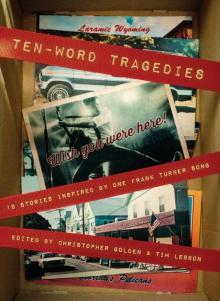 Ten-Word Tragedies
Ten-Word Tragedies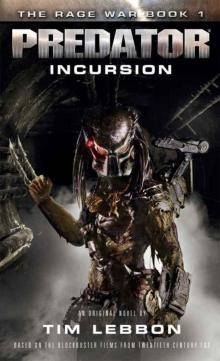 Predator: Incursion
Predator: Incursion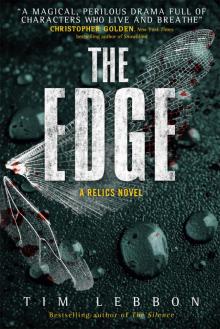 Relics--The Edge
Relics--The Edge Firefly
Firefly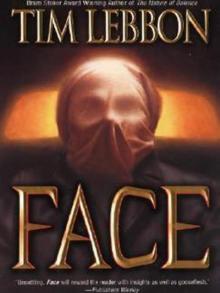 Face
Face Generations
Generations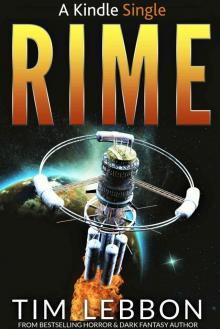 RIME (Kindle Single)
RIME (Kindle Single) Fallen
Fallen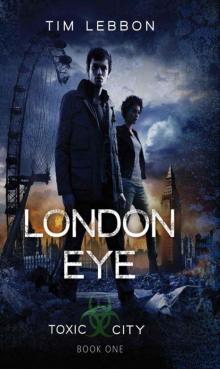 London Eye tc-1
London Eye tc-1 Kong: Skull Island
Kong: Skull Island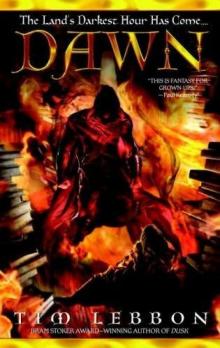 Dawn n-2
Dawn n-2 Into the Void: Star Wars (Dawn of the Jedi)
Into the Void: Star Wars (Dawn of the Jedi)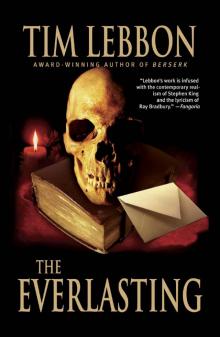 The Everlasting
The Everlasting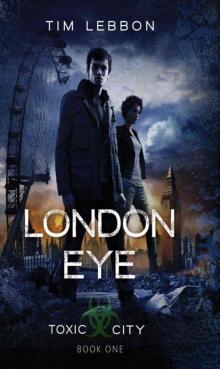 London Eye: 1 (Toxic City)
London Eye: 1 (Toxic City)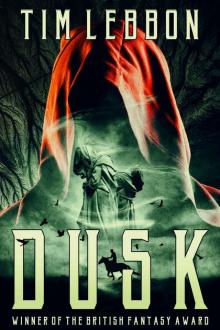 Dusk: a dark fantasy novel (A Noreela novel)
Dusk: a dark fantasy novel (A Noreela novel)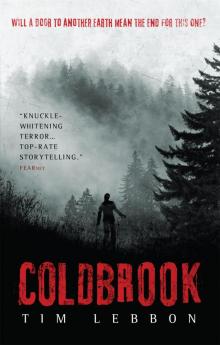 Coldbrook
Coldbrook Alien
Alien Dusk
Dusk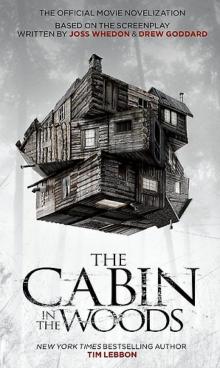 The Cabin in the Woods
The Cabin in the Woods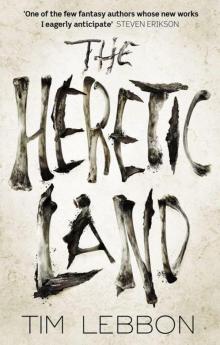 The Heretic Land
The Heretic Land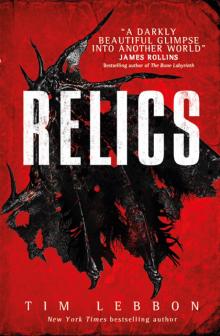 Relics
Relics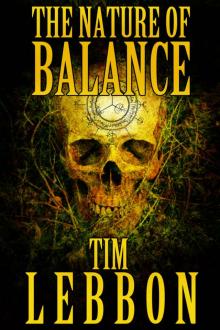 The Nature of Balance
The Nature of Balance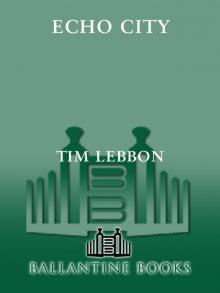 Echo City
Echo City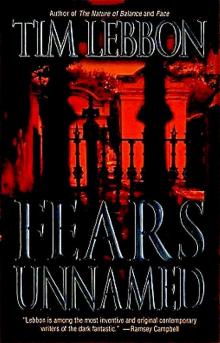 Tim Lebbon - Fears Unnamed
Tim Lebbon - Fears Unnamed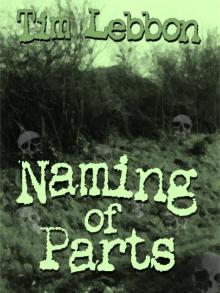 Naming of Parts
Naming of Parts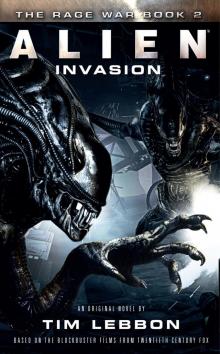 Alien--Invasion
Alien--Invasion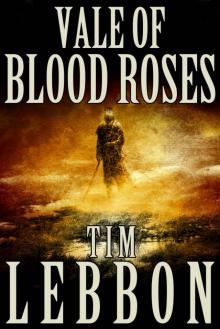 Vale of Blood Roses
Vale of Blood Roses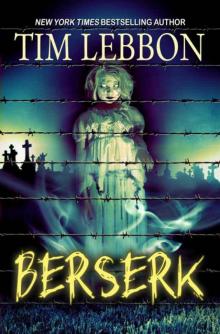 Berserk
Berserk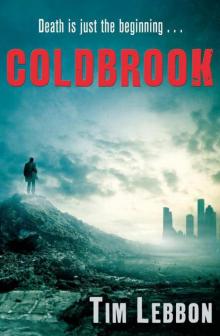 Coldbrook (Hammer)
Coldbrook (Hammer)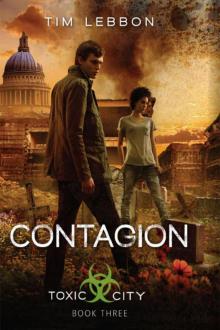 Contagion tc-3
Contagion tc-3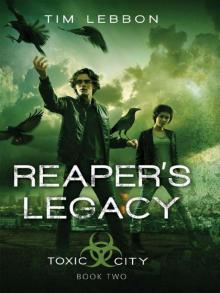 Reaper's Legacy: Book Two (Toxic City)
Reaper's Legacy: Book Two (Toxic City)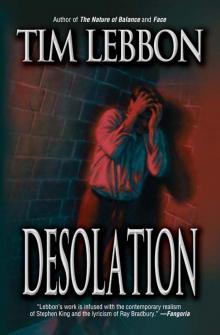 Desolation
Desolation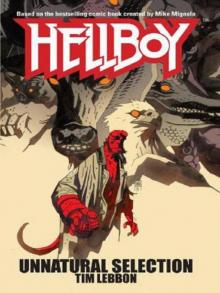 Unnatural Selection
Unnatural Selection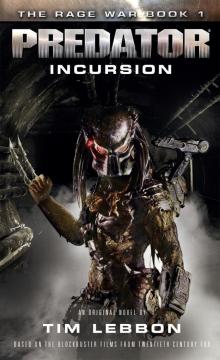 Predator - Incursion
Predator - Incursion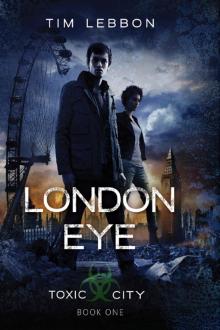 London Eye
London Eye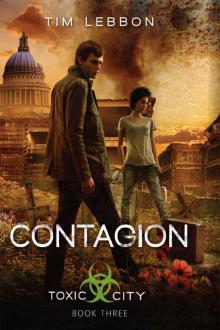 Contagion (Toxic City Book Three)
Contagion (Toxic City Book Three) The Silence
The Silence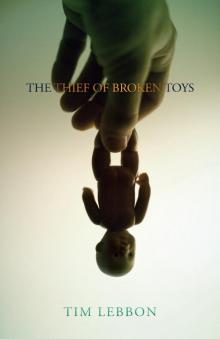 The Thief of Broken Toys
The Thief of Broken Toys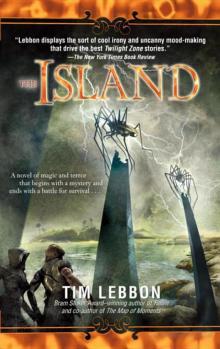 Tales of Noreela 04: The Island
Tales of Noreela 04: The Island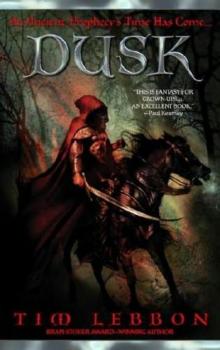 Dusk n-1
Dusk n-1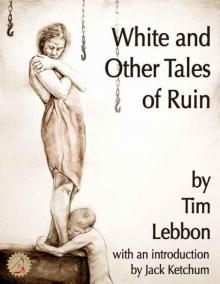 White and Other Tales of Ruin
White and Other Tales of Ruin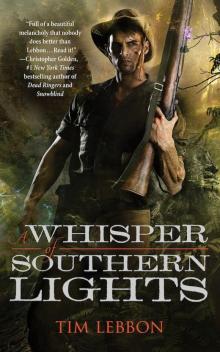 A Whisper of Southern Lights
A Whisper of Southern Lights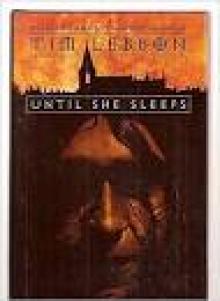 Until She Sleeps
Until She Sleeps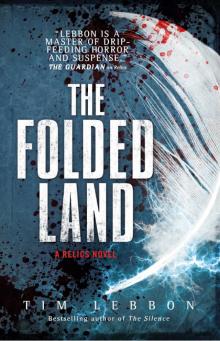 Relics--The Folded Land
Relics--The Folded Land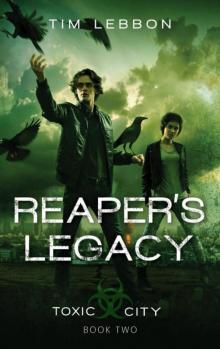 Reaper's Legacy tc-2
Reaper's Legacy tc-2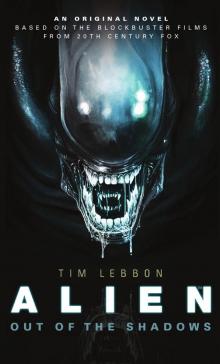 Alien: Out of the Shadows
Alien: Out of the Shadows Pieces of Hate
Pieces of Hate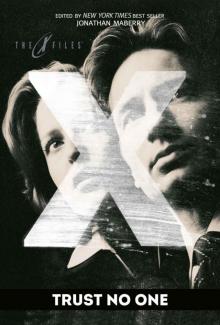 X-Files: Trust No One
X-Files: Trust No One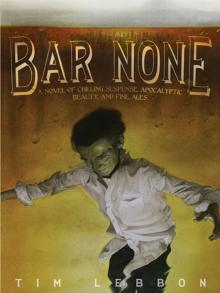 Bar None
Bar None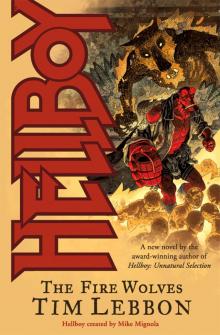 The Fire Wolves
The Fire Wolves